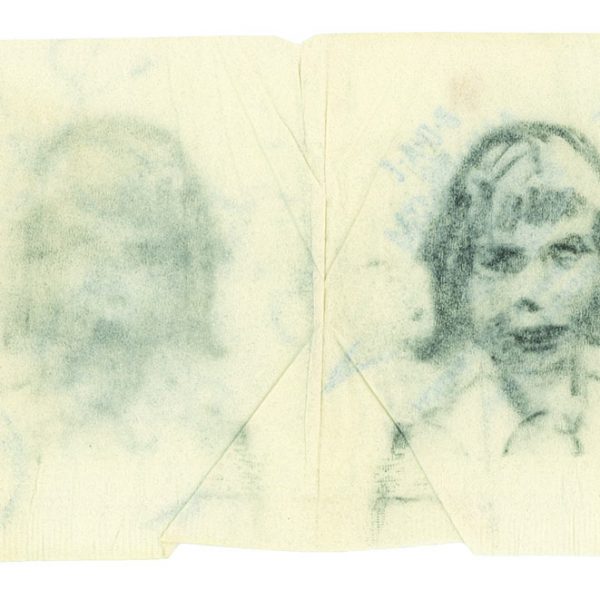Lest We Forget: What It’s Like to Lose It
Sarah Underwood—
Quite a few people, places, and things “lost it” in 2011. Ireland, Spain, Portugal, and Greecelost it early on this year. Osama bin Laden lost it. Multiple Arab dictators lost it. The economy never had it, but Greecemanaged to lose it again. The media keeps suggesting that even President Obama might be losing it as far as his constituents are concerned. Voldemort finally lost it in the eighth Harry Potter film, while Edward, Bella, and Jacob all lost it a little in last month’s release Breaking Dawn: Part 1 (not that I saw it in theaters). Most recently, Herman Cain lost it presidentially, though to be fair, he is not the first Republican candidate to be declared finished this year, as The Daily Show explains in the first segment of its November 17 episode. With the holidays reminding you that aren’t-you-getting-too-old-for-this-madness?, turn to William Ian Miller’s Losing It to bring a year that lost it to a satisfying close.
 Miller, a former professor of Law with an excruciating self-awareness echoing that of Montaigne and a penchant for Icelandic sagas, defines “it” as the mental and physical capabilities that decay as humans age, eventually making us unrecognizable to ourselves. Early on in Losing It, he recalls a moment that has occurred more than once while he was in his fifties and sixties. He caught sight of an old man in a security camera’s projection or a shop window and did not realize immediately that the man was himself. Even more painful is how he treats his bathroom mirror’s reflection, noting that while it was “more dangerous when you were fourteen and a humongous zit had erupted on your forehead hours before the Friday dance,” he still has to “put on a game face” when he has to look at his face as a whole. Miller analyzes various ways that men have used to cope with losing it—complaining to other people, complaining to God, seeking revenge, bestowing forgiveness—by looking to the historical precedents set by, for example, King David’s ordering hits from his deathbed.
Miller, a former professor of Law with an excruciating self-awareness echoing that of Montaigne and a penchant for Icelandic sagas, defines “it” as the mental and physical capabilities that decay as humans age, eventually making us unrecognizable to ourselves. Early on in Losing It, he recalls a moment that has occurred more than once while he was in his fifties and sixties. He caught sight of an old man in a security camera’s projection or a shop window and did not realize immediately that the man was himself. Even more painful is how he treats his bathroom mirror’s reflection, noting that while it was “more dangerous when you were fourteen and a humongous zit had erupted on your forehead hours before the Friday dance,” he still has to “put on a game face” when he has to look at his face as a whole. Miller analyzes various ways that men have used to cope with losing it—complaining to other people, complaining to God, seeking revenge, bestowing forgiveness—by looking to the historical precedents set by, for example, King David’s ordering hits from his deathbed.
Frustrated not just with the inevitable loss of his faculties, Miller also detests the “large body of work that celebrates the shrunken brain.” He wants to set the “adherents of positive psychology” straight: if the elderly people in studies claim they are happier in their twilight years, it is because, well, they have a shrunken brain lacking the clear judgment it once possessed. He is far more Dylan Thomas, raging, raging and not going gentle, than the content, serene caricature the positive psychologists have invented. Even so, he does respect the taking-to-bed tradition of the elderly, but his interpretation of it involves an ancient Norwegian berserker, Njal, covering himself with an ox hide on his bed to preserve his body as his enemies burn his house down around him. While he does not appreciate quiet retirement, he does not like its opposite, either, denouncing today’s “Viagra culture” because it “encourages us old guys to be senex amans, utter fools.” Nor does the youth-obsessed beauty cult entrap him, even with his avoidance of his mirror.
In the end, the worst part for him is actually muscle deterioration, but not because we will outlive our good looks (if we ever had any, he reminds us). “The horror is that you might outlive yourself, fading away in a demented haze,” he claims. I suppose some of those poor souls from 2011 might want to claim they were in a demented haze when they lost it (e.g. Weinergate). But after reading Losing It, I doubt anybody, from Njal the berserker to Voldemort, would ever actually want to forget who they were before they lost it.
Sarah Underwood is a graduate of the College of William and Mary and a former Yale University Press intern. Her column, Lest We Forget, appears on the Yale Press Log.



